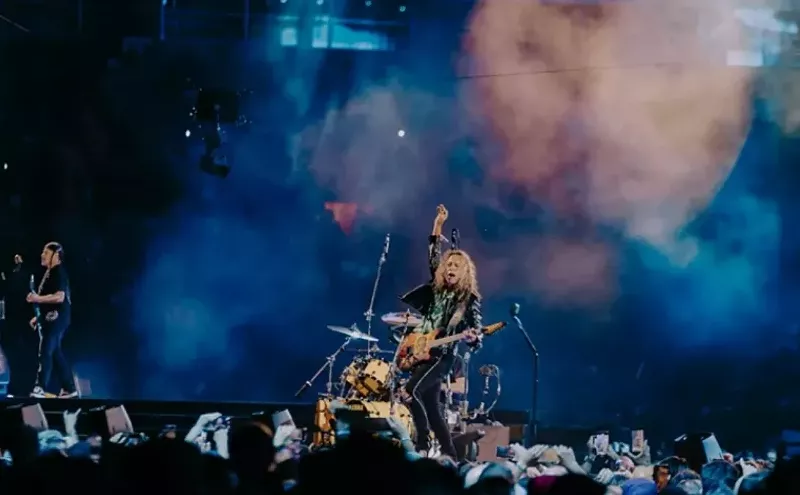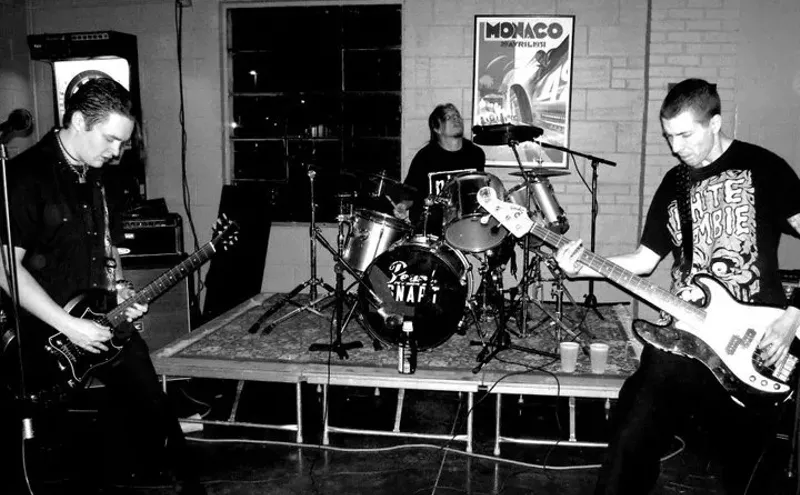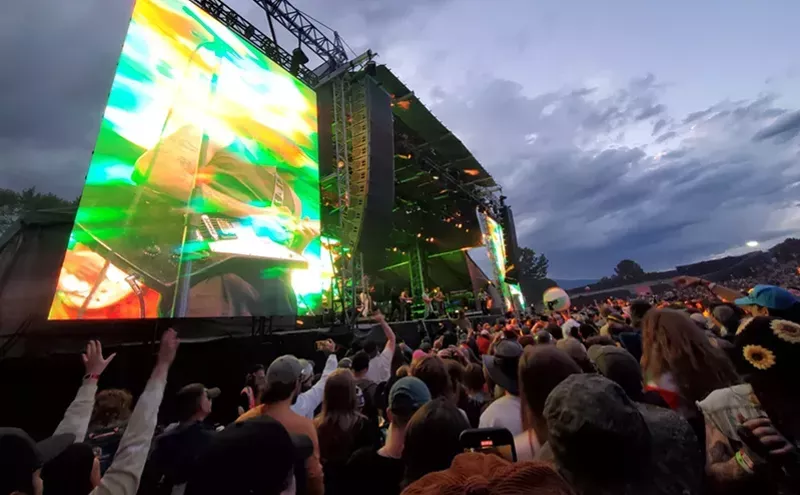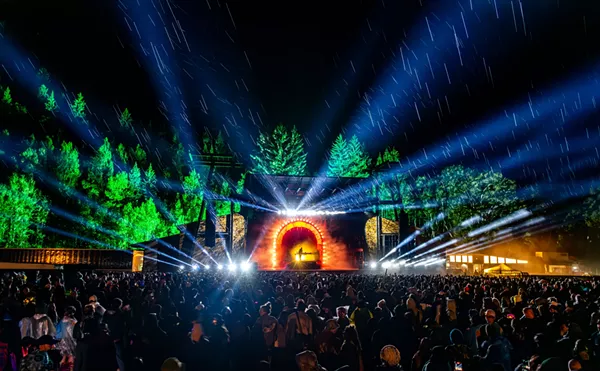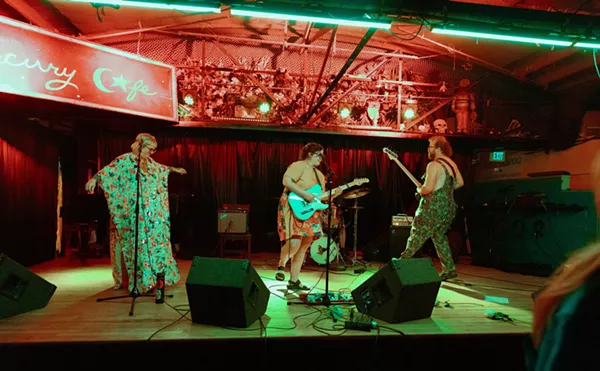Take it easy: That's albums, not music.
In fact, Cabeza Grande's recent output has increased dramatically, as a visit to Big Head Todd and the Monsters' website will attest. Back in November, Mohr and company -- bassist Rob Squires, drummer Brian Nevin and multi-instrumentalist Jeremy Lawton -- began offering their new recordings via free podcasts. "We've been podcasting about three new songs a month," Mohr explains. "Just having a blast with it. It's fun for me to be able to write a song and share it as I'm working on it. On every level, I just love the format of podcasting. It allows me to be a lot more spontaneous, and it's engaging for me because of that.
"The tracks I've been posting are pretty developed, mastered and ready to go," he continues. "If I can keep up this pace -- and I think I'll be able to -- it's the equivalent of three albums a year. So it's a lot more music. I actually prefer this format, in general, to albums. I don't know if I'll be interested in making another album."
Mohr, who's already issued six full-lengths and three live recordings on the act's own imprint and through several majors and indies, made the shift after feeling stifled by the confines of the standard framework. "I really love the format of continuous music and being able to work in smaller bunches of songs," he says. "It gives me a lot more freedom to play with different styles and so forth. An album needs to be kind of a tight idea."
Podcasts offer much more freedom -- both for musicians and fans. "Now that computers and music have joined forces, music is a lot more singles-oriented -- at least the way that I do it, and everybody who I know who has an iPod does it," Mohr notes. "We build catalogues of songs, and we listen to our favorite songs as opposed to albums. I think it's an inevitable change."
Mark Bliesener, Big Head's longtime manager, fully agrees. "I see the album form -- and I hate to say it, because I'm enough of a dinosaur to love it -- going away," he says. "When I was a kid starting off in the business, it was a singles world. And it's a singles world again. And that's a good thing. Every band doesn't deserve to make an album, for crying out loud. In terms of songwriting -- I mean, bands can make as many albums as they damn well please these days -- but in terms of songwriting, sheesh, there's an awful lot of bad stuff out there. But a lot of those bands do have great singles."
Although Big Head has put out great albums, too, this model suits Mohr's songwriting style. "I think in songs, as opposed to albums," he says. "I like being able to write a song and not have to think, ŒWell, is this going to fit on an album or not?' I feel a lot freer. Everything doesn't have to fit in a narrow box."
The model also suits the group's marketing style, eliminating the middleman so that Big Head can deal directly with the fans. "There's just a rush for me to feel like there's not a barrier between us and the process of making music and the fans," Mohr confesses. "The more layers that get stripped away, the more exciting it becomes. Because I find that people, in addition to being psyched that you're interested in them, are really responding to a more organic creative process -- not having lawyers and A&R men making artistic decisions. I think that takes us back to the excitement of being an independent."
Of course, the majority of artists -- independent or otherwise -- simply can't afford to leave any money on the table. But Big Head Todd and the Monsters' core constituency is firmly established, and the act owns its own solar-powered studio, so Mohr's in a far better position than most musicians to be idealistic.
"I honestly think music and art should be free on the Internet," he says. "I look at the Internet as a broadcast. I believe in kind of a free culture movement, generally. So it's more out of what I believe is good for our culture. I love file sharing. I'm a believer in it. I think it helps our band. The more people who can share our music, ultimately the better it is for us. You know, we -- like probably 99 percent of the artists out there -- don't make a whole heck of a lot on album sales, in the traditional model. So it ain't like I feel like I'm giving up a whole heck of a lot.
"We're at about 20,000 downloads so far," he adds. "We haven't really put any money into advertising or anything. We're just getting the thing started. It beats the shit out of the album numbers. It's really exciting and encouraging, just because I think that we're able to make a deeper link with fans."
Bliesener believes the podcasting approach is good not just for fans, but for business.
"Was there ever a revenue stream for the average act from selling records?" he asks. "I don't think so. Unless you sold a bazillion records, you didn't make any money. And the distribution of music -- which is what this is about -- was always the loss leader to selling concert tickets. Because it was on the road that people traditionally made the most money. Most bands are in the hole to the label. And if they're doing it on their own, it's costing them a lot to do it right.
"I want the artist to be protected, and I certainly want the artist to make money," Bliesener adds. "But this is one area where they can forgo the money and, I think, not only give their fans something for free, but also advance their career. It just makes sense."
And it's already produced tangible results. "We've had a few promoters go, ŒWhat the heck is going on here?' because our ticket sales have been so fast," Mohr says. "It's fun to see the numbers grow. And the band is really making an effort to be a lot more interactive. People love it when an artist answers their e-mail and takes the time to be involved. It's becoming more interesting to me. I may be more interested in it than I ever have been. That's kind of a neat thing to experience after twenty years of being in a band."



